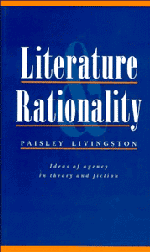3 - Naturalism and the question of agency
from II - TEXTUAL MODELS
Published online by Cambridge University Press: 16 October 2009
Summary
At the end of The Financier, the first novel in his Trilogy of Desire, Dreiser turns away from the story of his protagonist's life and appends a few paragraphs, which at first glance may seem quite unrelated to the rest of the novel. Dreiser's coda has two parts: ‘Concerning Mycteroperca Bonaci’ and ‘The Magic Crystal’. The former begins like a lesson in natural history: ‘There is a certain fish, the scientific name of which is Mycteroperca Bonaci, its common name Black Grouper, which is of considerable value as an afterthought in this connection, and which deserves to be better known.’ The black grouper, we are instructed, is a prosperous organism that enjoys a long and comfortable existence by virtue of its remarkable ability to imitate its environment. ‘Lying at the bottom of a bay, it can simulate the mud by which it is surrounded. Hidden in the folds of glorious leaves, it is of the same markings. Lurking in a flaw of light, it is like the light itself shining dimly in water. Its power to elude or strike unseen is of the greatest.’ The mimetic fish is said to be ‘a living lie, a creature whose business it is to appear what it is not, to simulate that with which it has nothing in common, to gets its living by great subtlety, the power of its enemies to forefend against which is little’.
- Type
- Chapter
- Information
- Literature and RationalityIdeas of Agency in Theory and Fiction, pp. 89 - 122Publisher: Cambridge University PressPrint publication year: 1991



